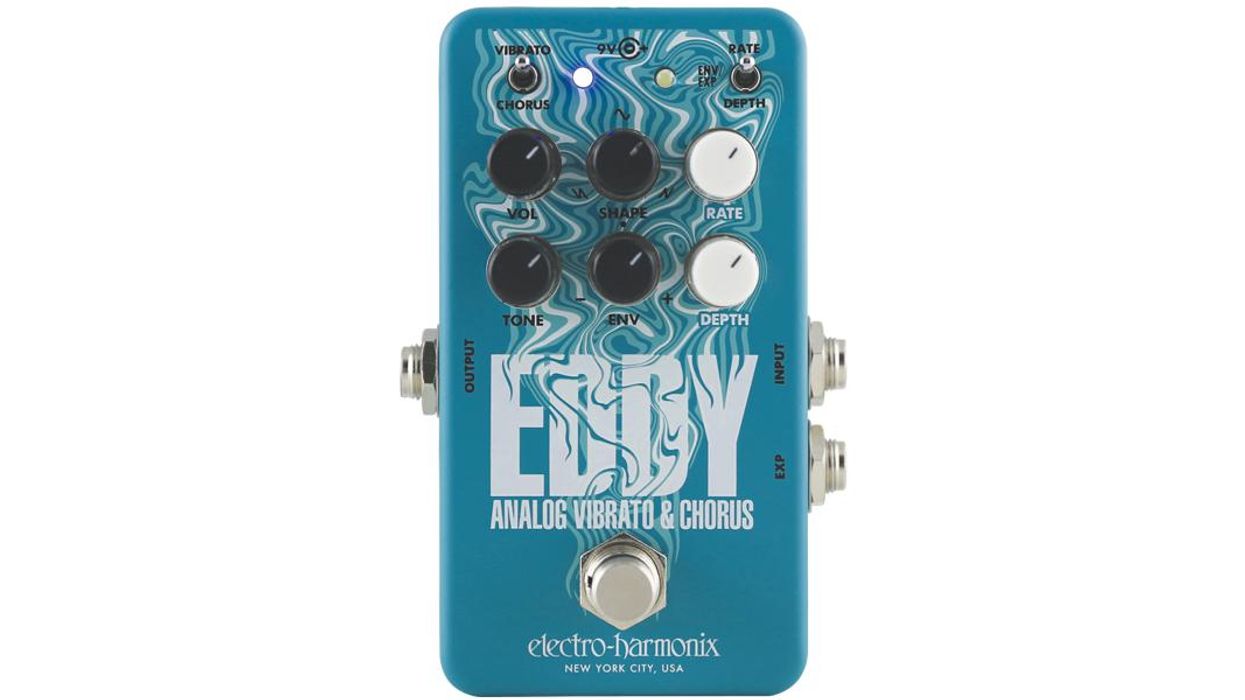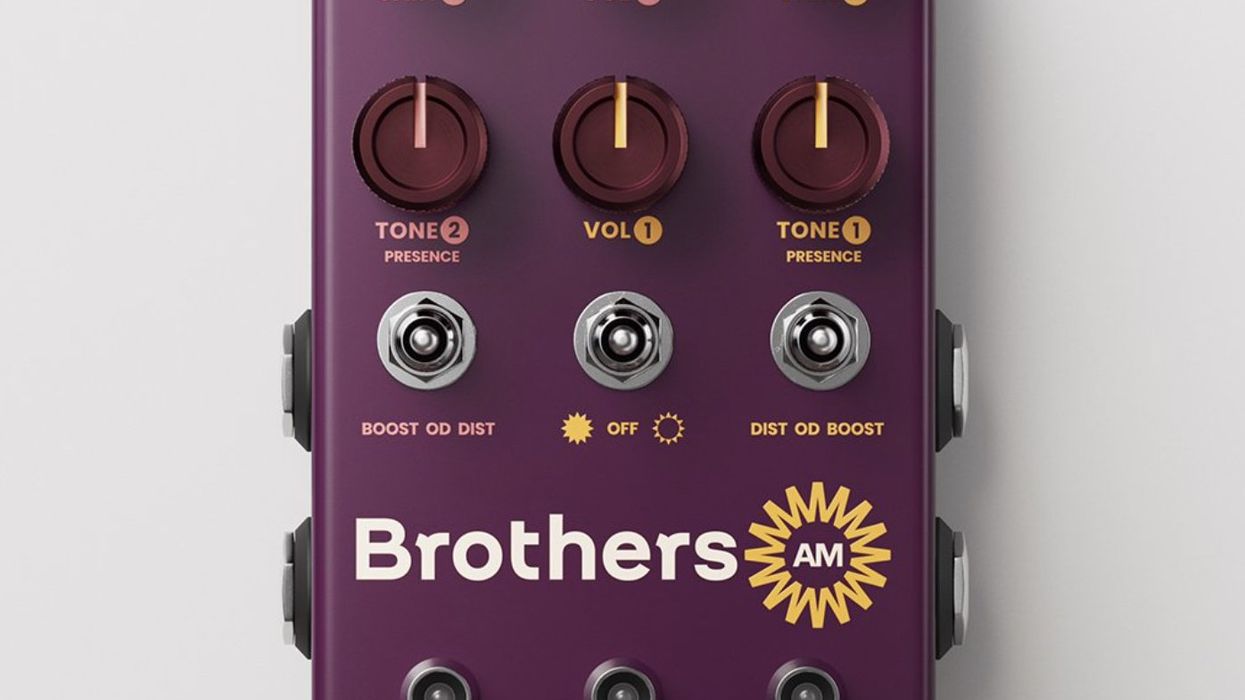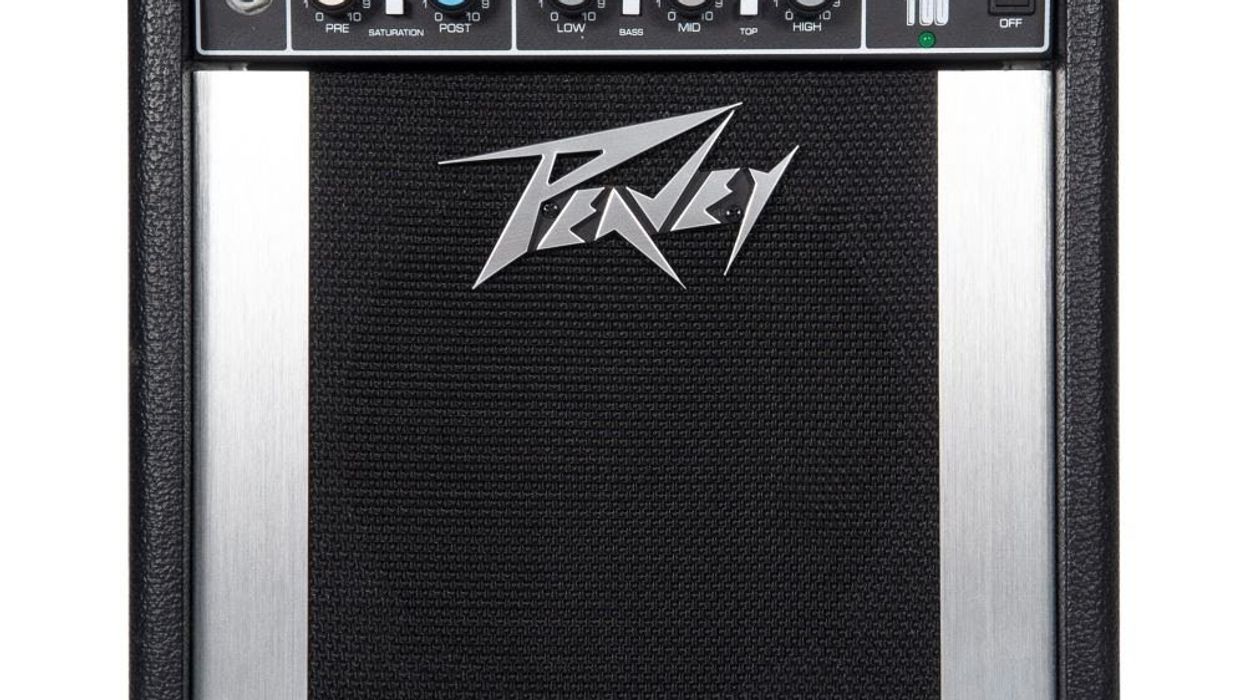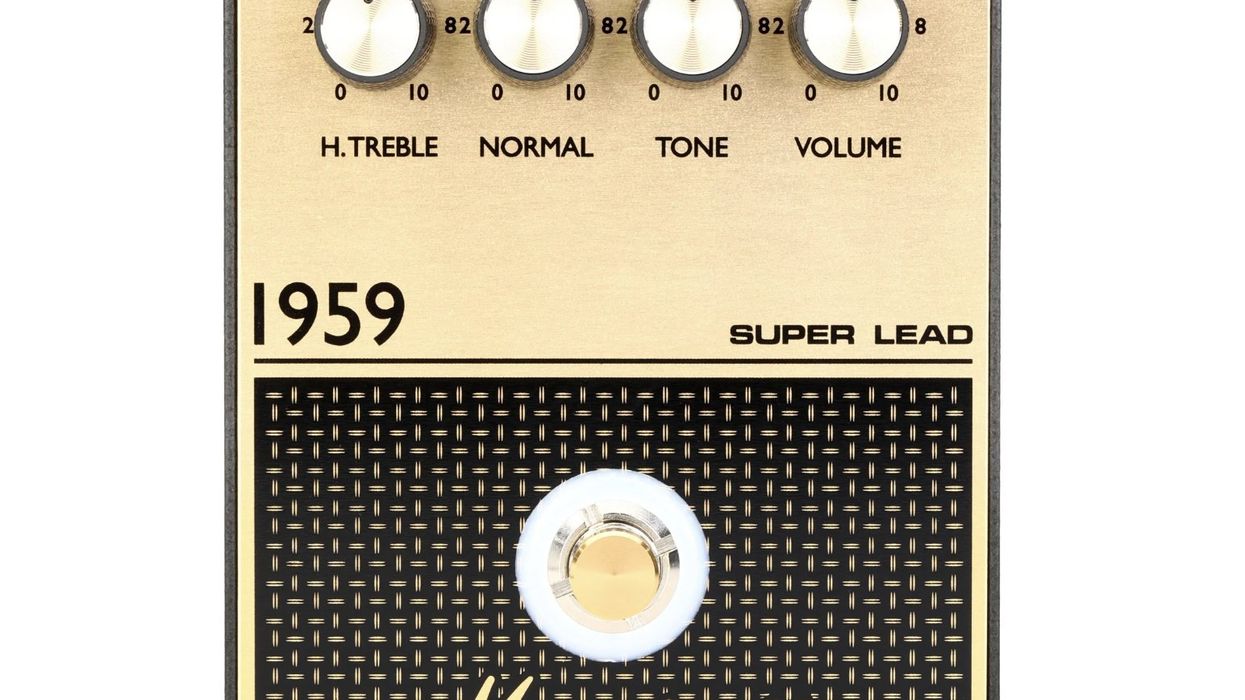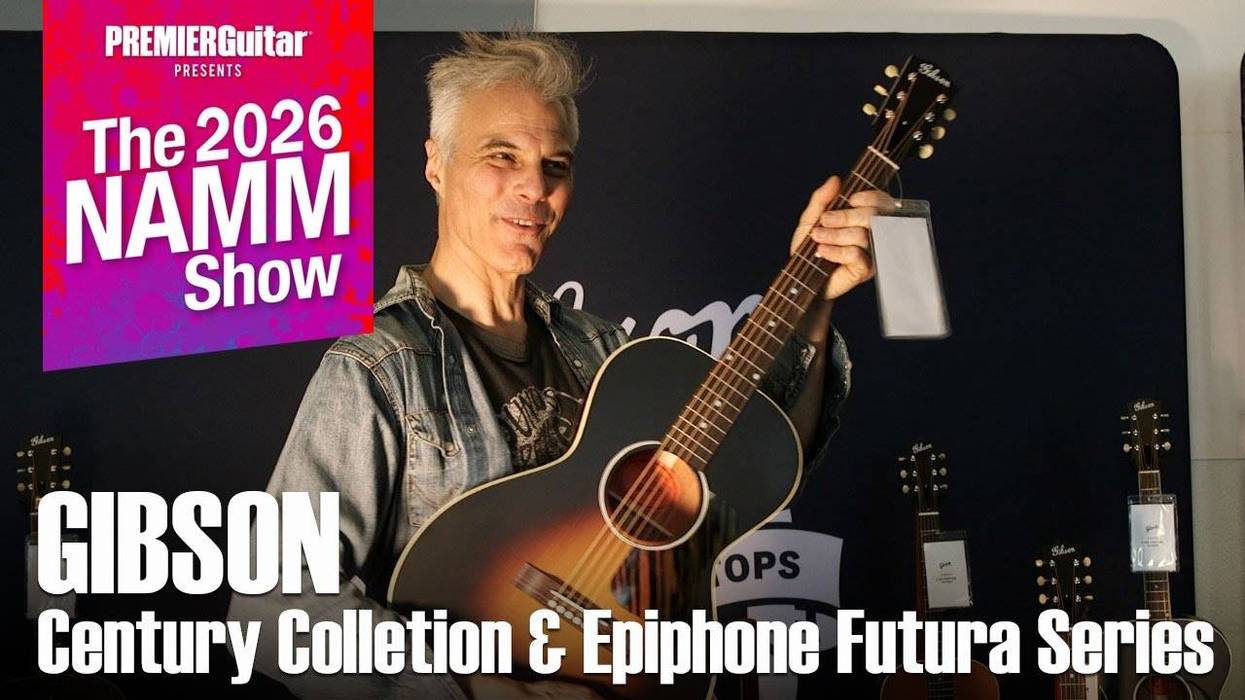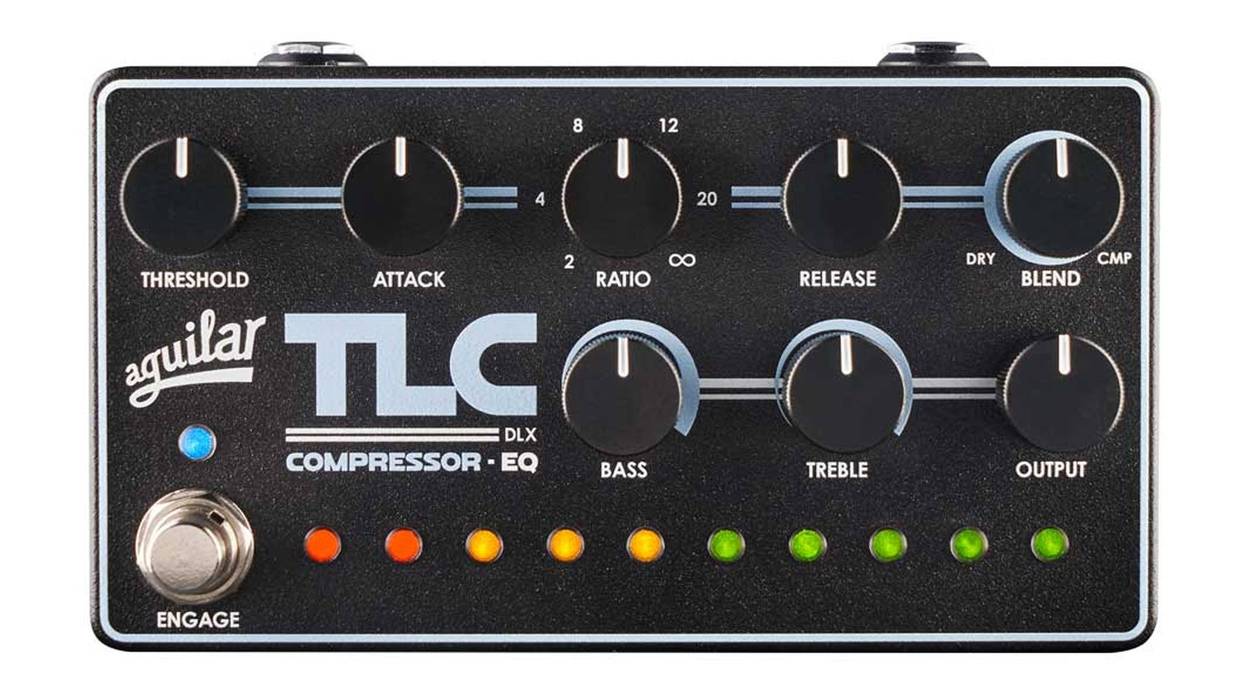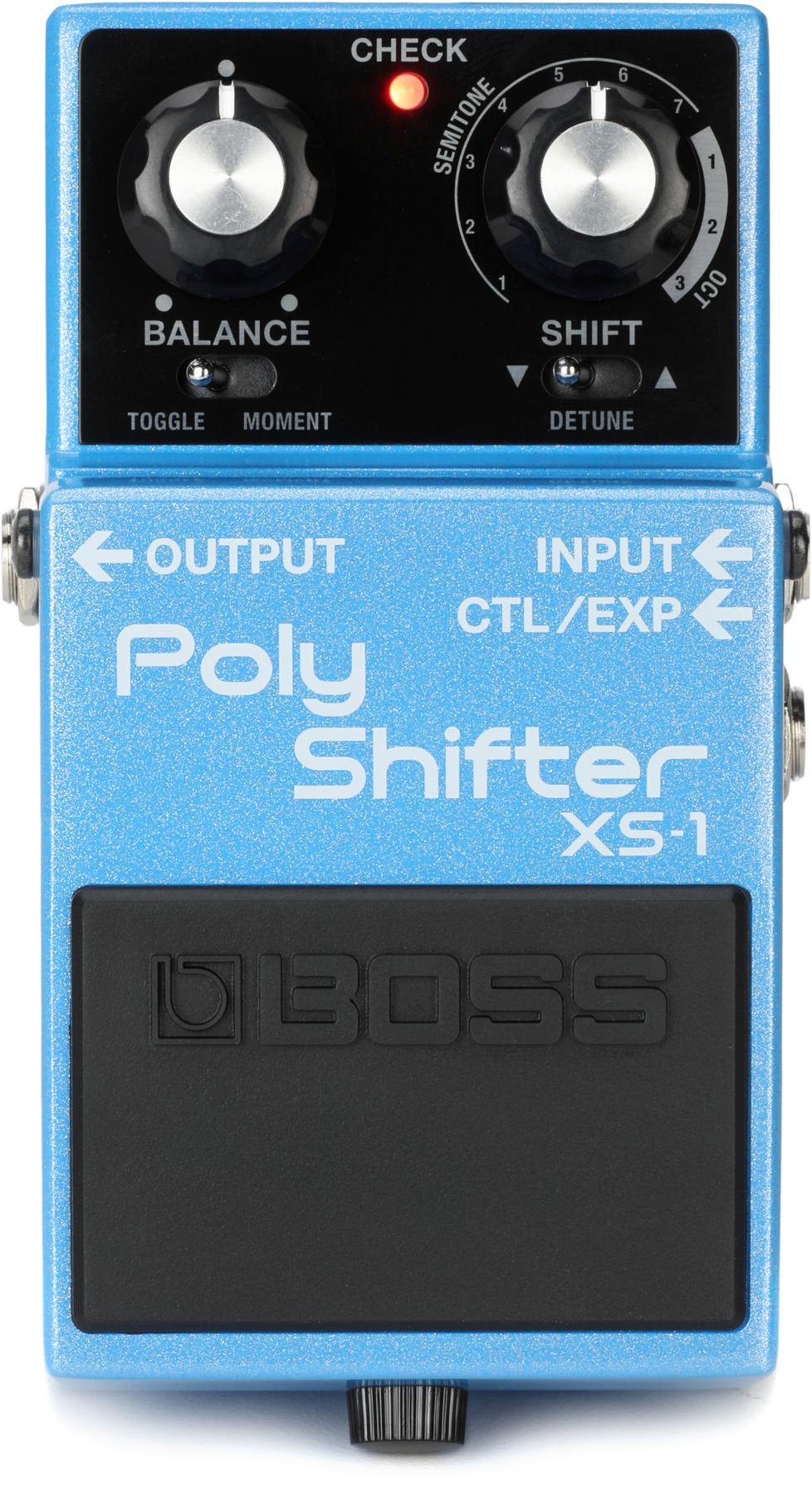RatingsPros:Cool variety of modulation textures. Super value. Performance-friendly detents on critical controls. Cons: Tight spacing between knobs makes some adjustments tricky. Street: $99 Electro-Harmonix Eddy ehx.com | Tones: Ease of Use: Build/Design: Value: |
I got hooked on Electro-Harmonix’s analog chorus and vibrato quite accidentally, because it was built into my Deluxe Memory Man pedal. I rarely used that DMM delay without a touch of modulation. And given that I rarely played without the DMM switched on, I suppose there was usually a touch of EHX modulation in my playing—always adding a just-right touch of liveliness, even at barely perceptible levels.
The new analog Eddy is a far more versatile chorus/vibrato than the fixed-rate unit in the old Deluxe Memory Man. And with an envelope control, master output volume, and a variable wave shape control, it has more bells and whistles than EHX’s standard-bearing Small Clone and Clone Theory choruses. Minimalists may prefer the straight-ahead design of those classics, but at 99 bucks, this feature-filled stompbox may well earn a place alongside those pedals as a value-priced modulation essential.
Wigglin’ Through Waterworld
EHX is often ambitious about stuffing maximum functionality into compact pedals. And even though Eddy’s control set is fairly modest, the spacing between knobs makes it feel a touch cramped. That said, there are more features than you typically see on an affordable chorus/vibrato, and the layout is smart. The most familiar controls—rate and depth—are clearly designated with white knobs. EHX also thoughtfully placed center detents on the shape and envelope knobs, which zero-out at noon, rather than full counter-clockwise.
The volume control helps compensate for the dB loss some players perceive when using deep modulation textures. Most of the boost comes in the latter third of the control’s range, and while it’s subtle, it adds extra menace to deep chorus settings and can blur and compress modulation peaks in cool ways.
Meanwhile, the tone control offers slightly more dark tones than bright ones. My Telecaster, for instance, didn’t sound like it’s twangingly bright self until I turned the tone up to about 1:30. But the brighter settings above that point added extra definition, excitement, and presence—particularly in chorus settings. The darker tones, meanwhile, are useful for adding spooky ’80s goth ambience to chorus sounds.
River Ripple Wave Rider
Eddy’s busier-than-usual control set adds up to abundant tone options, from subtle to bold and weird to focused. The basic voice sometimes sounds a bit less complex than vintage-style circuits, and A/B tests with my own go-to chorus revealed fewer overtones in Eddy’s modulations at roughly equivalent rate and depth settings. Such space is key, at least to my ears, to the “chewiness” that chorus fiends treasure and which is vital for achieving the best rotary-speaker approximations. On the other hand, Eddy can conceivably slot more tidily into a dense mix, as super-rich chorus has a way of taking up a lot of sonic space.
If Eddy doesn’t always sound quite as lush and aqueous as a vintage Small Clone or CE-2, it gives you way more wave-shaping power to create fresh, less dogmatic chorus and vibrato sounds. The shape control shifts modulations between up- and down-sloping waveforms, depending on which side of the center detent you’re on—enabling queasy waveforms that blur the lines between chorusing and pitch shifting. It’s extra weird in pure vibrato mode—producing bizarre modulations that sound like the musical equivalent of a half-dozen tequila shots too many. And while the envelope control, which increases rate or depth depending on your playing intensity, can be subtle, the dynamic shifts it produces and encourages can spark unconventional riff and arrangement ideas.
The Verdict
With a sub-$100 price and functionality that enables both classic and fantastically weird modulations, the Electro-Harmonix Eddy is hard to beat for value. Factor in its small size and quiet soft-relay switch, and it’s easy to imagine it becoming a pedalboard staple for gigging players. Vintage chorus snobs may crave a little extra space for harmonic information between modulations. But for players who use chorus subtly, occasionally, or just as a blast of heavily weirded modulation to mix up a song or the creative process, the Eddy is a can’t-miss bargain.


